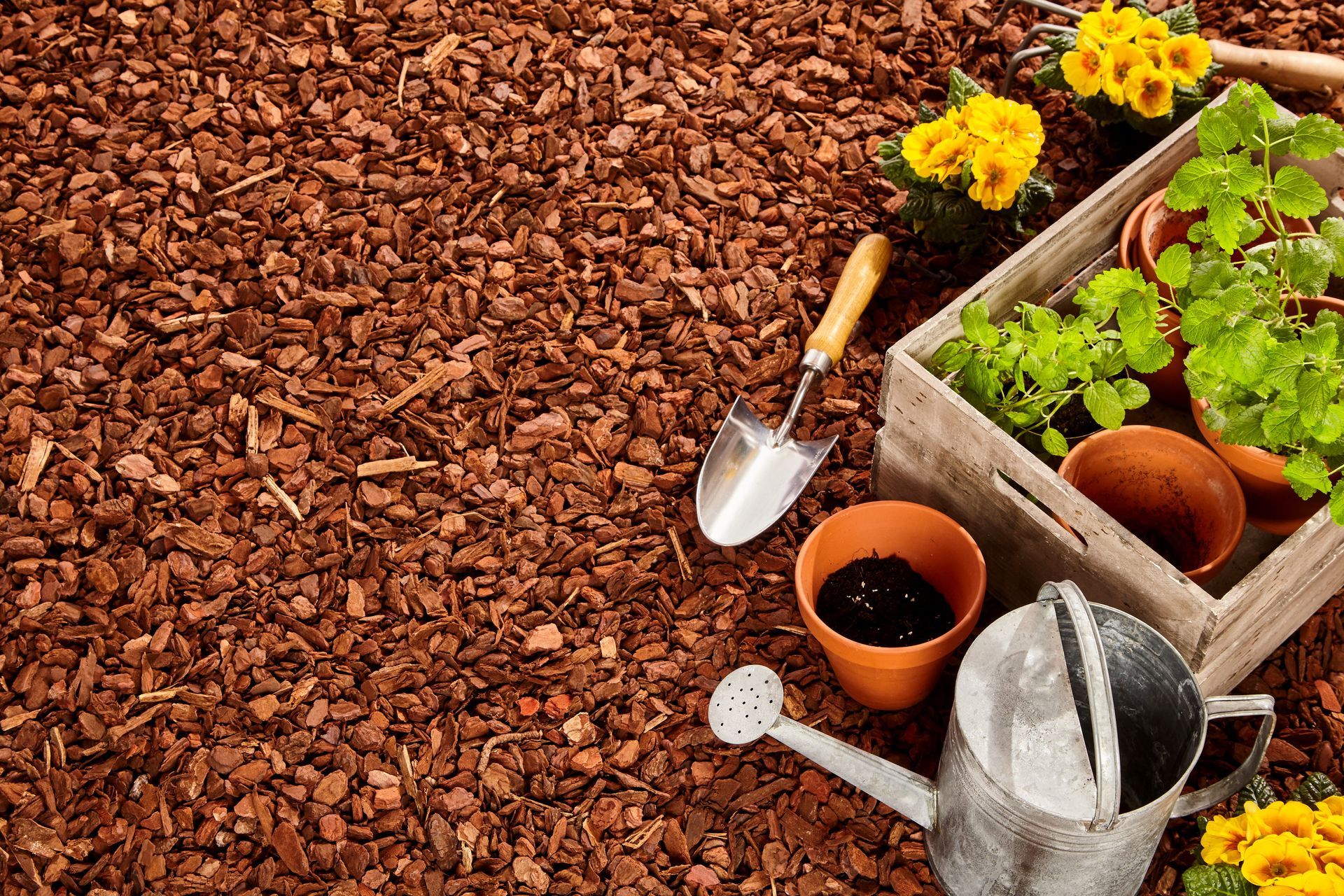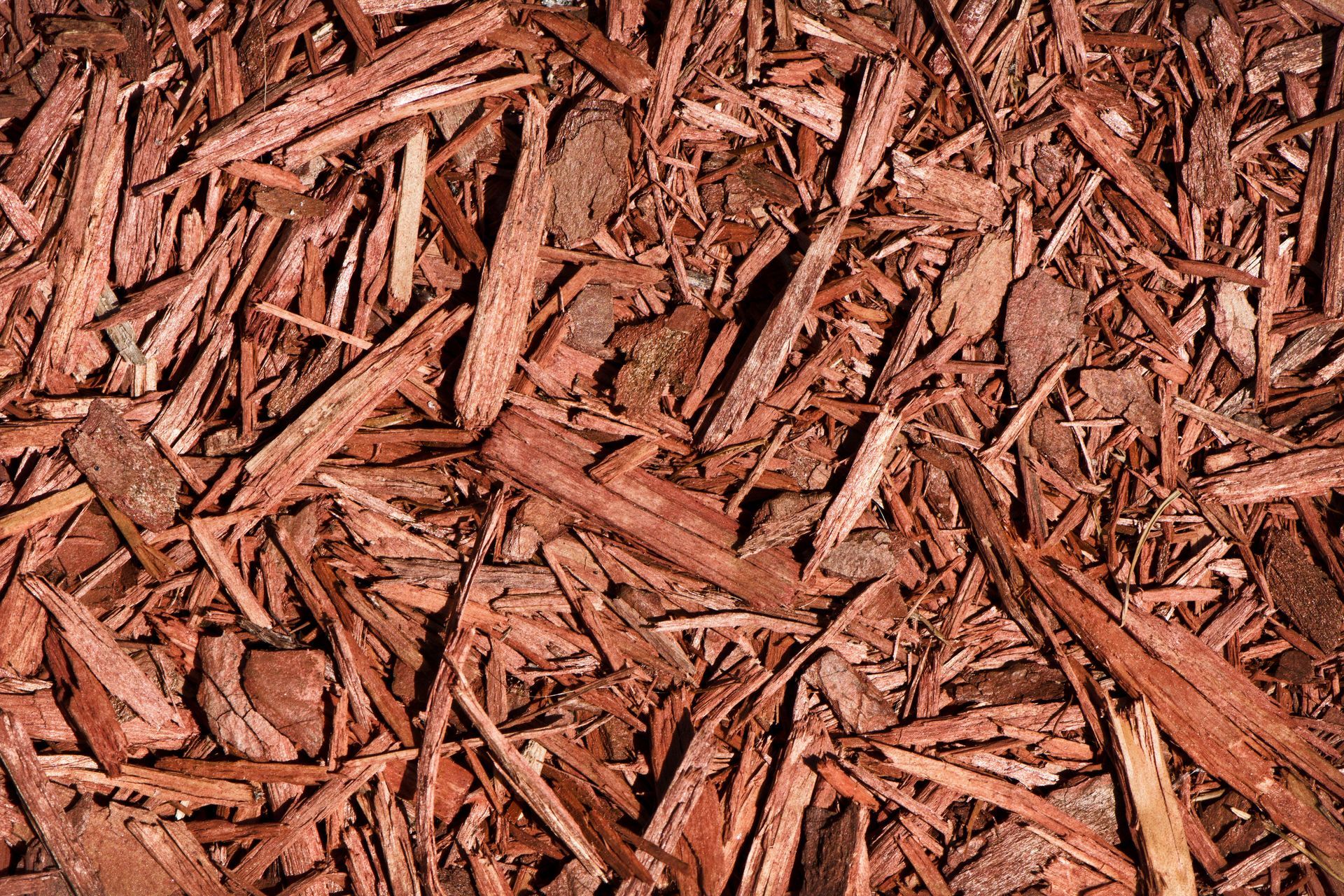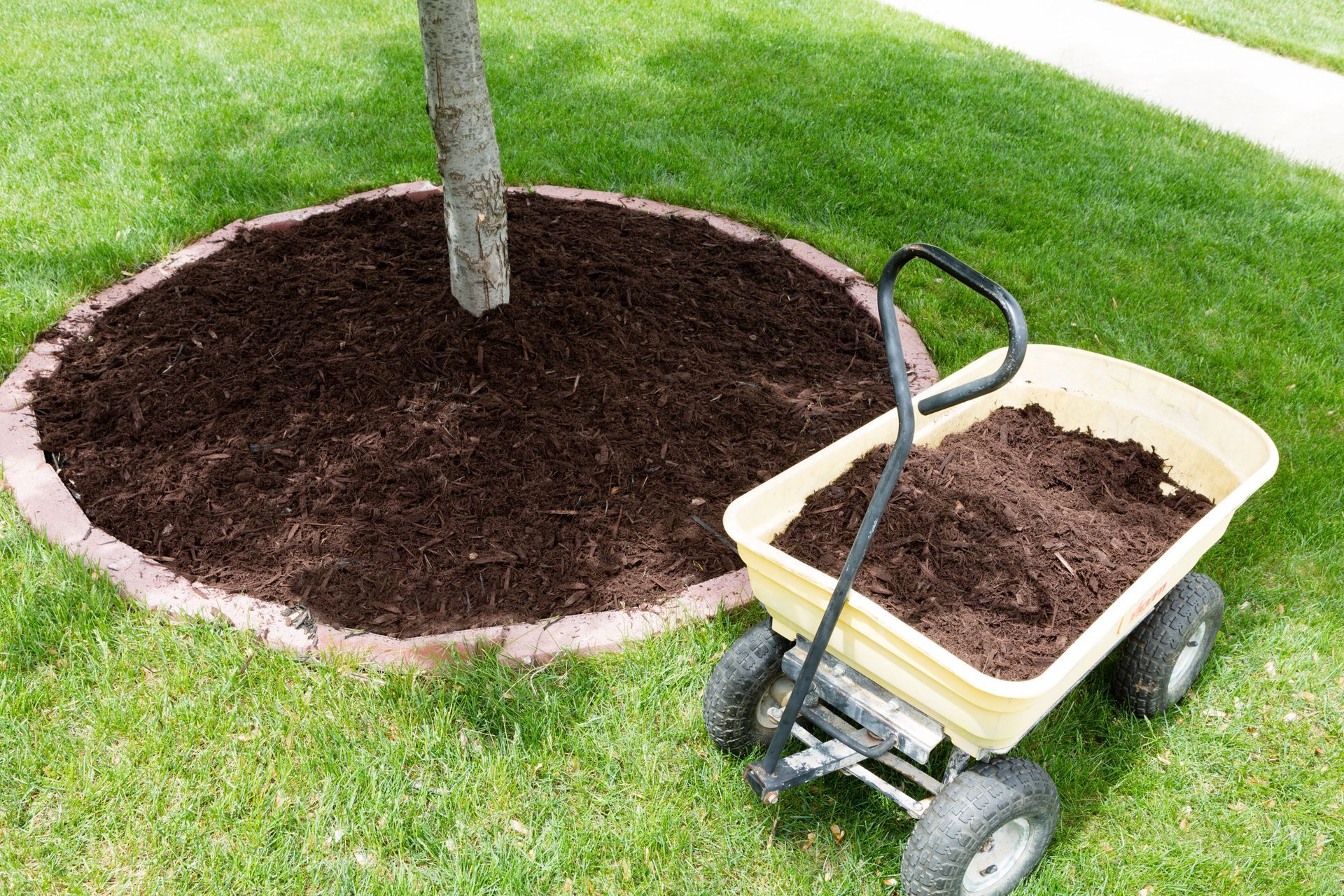Types of Mulch and When to Use Them for Best Results
Mulching is a crucial practice in gardening and landscaping that helps retain soil moisture, suppresses weeds, and improves soil health. By covering the soil surface with various types of materials, gardeners can protect plants and enhance the visual appeal of their spaces. Over time, the practice of mulching has evolved, with different types of mulch being developed to cater to a diverse range of environments and specific gardening needs. Here we will explore various types of mulch and provide guidance on the best application scenarios for each type to maximize your gardening efforts.
Shredded Bark
Shredded bark is one of the most popular organic mulch options due to its ability to enhance soil health over time. As it breaks down, it enriches the soil with essential nutrients, improving the soil structure and fostering a healthier ecosystem for plant roots. Originating from the outer layer of trees, it creates a natural barrier against weeds while helping to retain soil moisture. Shredded bark is widely available in various forms, including large and fine textures, making it suitable for different garden aesthetics. Its use can be particularly beneficial in areas prone to soil erosion, as it helps to stabilize the surface while feeding the underlying soil.
Another advantage of shredded bark is its long-lasting nature, which reduces the need for frequent reapplication. Available in a variety of colors, including natural, black, and red, it can also be used to enhance the aesthetic appeal of garden beds. When used as a top layer, shredded bark can regulate soil temperatures, providing insulation during colder months. It is essential to note that the rate of decomposition varies depending on the type of bark used and the local climate conditions.
Straw Mulch
Straw mulch is an excellent organic choice for vegetable gardens due to its lightweight nature and effectiveness at controlling weeds. Derived from cereal grains such as wheat, oats, or barley, straw offers a natural barrier to weeds without introducing seeds that could germinate. Its ability to conserve soil moisture by reducing evaporation makes it an ideal choice for regions experiencing dry spells. When applied properly, straw mulch also helps to regulate soil temperature, ensuring that plant roots remain cool during summer and warm in early spring. Additionally, as it breaks down, straw adds organic matter to the soil, enhancing its fertility and structure.
Leaf Mulch
Leaf
mulch is a sustainable organic mulch option made from fallen leaves, offering a great way to recycle garden waste and enrich the soil. As the leaves decompose, they release valuable nutrients back into the ground, acting as a natural fertilizer that promotes healthy plant growth. This type of mulch is highly effective in suppressing weeds, maintaining soil temperature, and retaining moisture, making it a multifunctional choice for gardeners aiming for economical and environmentally-friendly practices. Additionally, leaf mulch contributes to increased biological activity in the soil, encouraging beneficial microorganisms that enhance soil fertility and structure. It's an ideal option for flower gardens, perennial borders, and around trees.
Beyond its environmental credentials, leaf mulch also provides economic advantages, being virtually cost-free aside from the labor involved in collection and preparation. According to IBISWorld, industry revenue for such sustainable gardening practices has grown at a compound annual growth rate of 6.0% over the past five years, reflecting growing interest in eco-friendly solutions that leaf mulch epitomizes. Additionally, using leaf mulch improves garden aesthetics by providing a uniform and attractive ground cover that blends well with natural surroundings. By incorporating leaf mulch into landscaping practices, gardeners contribute to the reduction of landfill waste while fostering conditions conducive to robust plant health.
Grass Clippings
Grass clippings are a readily available type of organic mulch that can serve multiple functions in the garden. Recycling clippings from routine lawn mowing provides a simple and effective way to nourish plants and suppress weeds. As a mulch, grass clippings break down quickly, releasing nitrogen and other nutrients that enhance soil fertility and encourage vigorous plant growth. However, care should be taken to apply clippings in thin layers, ideally around one inch deep, to prevent matting and ensure adequate aeration and moisture penetration. This method is particularly advantageous for homeowners seeking to reduce waste and promote sustainable garden practices.
Compost
Compost is an organic mulch that offers unparalleled nutritional benefits to plants, derived from the controlled decomposition of organic matter such as kitchen scraps, yard waste, and other biodegradable materials. This rich, dark material serves as a powerful natural fertilizer that significantly improves soil health and boosts plant productivity. The comprehensive nutrient profile of compost makes it an excellent choice for a wide variety of gardening applications, from vegetable plots and flower beds to trees and shrubs. Beyond its fertility-enhancing properties, compost helps retain soil moisture, promote beneficial microbial activity, and improve soil structure.
Plastic Mulch
Plastic mulch is an inorganic option favored for its ability to modify soil and crop environments to offer optimal growth conditions. Typically, black or clear polyethene sheeting, plastic mulch creates a controlled microenvironment beneficial for temperature-sensitive crops, such as tomatoes and melons. By increasing soil temperature, it extends the growing season and facilitates earlier plant maturation. Moisture retention is another key advantage, as the impermeable barrier limits evaporation, ensuring efficient water use. Additionally, the use of plastic mulch significantly reduces weed competition, eliminating the need for chemical herbicides and labor-intensive weeding.
Landscape Fabric
Landscape fabric is a highly effective inorganic mulch option for long-term weed suppression, suitable for both residential and commercial applications. Made from woven polypropylene material, it provides a permanent barrier that prevents weed growth while allowing water and nutrients to penetrate the soil. Its use in garden beds and around trees reduces competition for resources, promoting healthier plant development. By minimizing the need for chemical herbicides, landscape fabric aligns with environmentally conscious gardening practices. This durable material is ideal for establishing pathways, walkways, and beneath decorative mulch or stones for added stability.
Stone and Gravel
Stone and gravel mulch present an attractive and durable inorganic choice for enhancing the visual appeal of outdoor spaces. Available in various colors, shapes, and sizes, these materials create unique landscape designs while providing practical benefits such as erosion control and weed suppression. Stone or gravel mulch is particularly suited for dry, arid regions where organic alternatives may decompose too quickly. Used in xeriscaping, it complements succulents and drought-tolerant plants with its heat-retaining properties, encouraging efficient water use. The low-maintenance nature of stone and gravel also contributes to long-term garden sustainability.
Rubber Mulch
Rubber mulch is a practical and long-lasting inorganic alternative designed to offer safety, durability, and recyclability. Made from recycled tires, rubber mulch is not only environmentally friendly but also effective in protecting playgrounds, garden beds, and pathways due to its shock-absorbing qualities. Its resilience to compaction and degradation ensures consistent performance over time, minimizing maintenance needs. Unlike organic mulches, rubber does not attract pests or promote mold and mildew growth, providing a clean, low-maintenance option for homeowners. Additionally, its insulation properties help maintain stable soil temperatures, thereby supporting plant growth.
Mulching remains one of the most effective and versatile techniques for maintaining a healthy, attractive, and sustainable garden. By understanding the distinct properties and best applications of these materials, gardeners can make informed choices that enhance soil health, improve moisture retention, and reduce maintenance efforts. Ultimately, the right mulch not only supports thriving plant growth but also contributes to a more eco-friendly and visually appealing outdoor space. Contact Draco Property Management for more information today.





Share On: